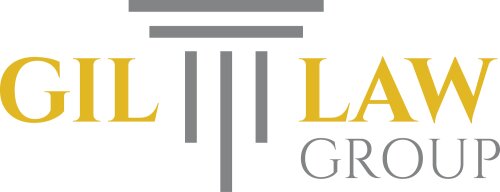Best Energy, Environment & ESG Lawyers in Dominican Republic
Share your needs with us, get contacted by law firms.
Free. Takes 2 min.
Or refine your search by selecting a city:
List of the best lawyers in Dominican Republic
About Energy, Environment & ESG Law in Dominican Republic
Energy, Environment and ESG (Environmental, Social and Governance) law in the Dominican Republic encompasses a growing field that addresses how companies and individuals interact with natural resources, comply with environmental regulations, and meet evolving international standards for sustainability and corporate responsibility. The country has made significant advances in integrating environmental protection, renewable energy policies, and ESG principles into its legal system. These efforts aim to promote sustainable development, ensure proper management of energy resources, and align with global best practices.
Why You May Need a Lawyer
There are several scenarios in which legal assistance in this field is essential. For example, individuals or companies investing in renewable energy projects need to navigate complex permitting processes and comply with Dominican Republic’s energy laws. Businesses looking to start operations or expand may require environmental impact assessments and need to understand the legal implications of their activities on local ecosystems. In addition, companies operating internationally are increasingly required to adhere to ESG standards, which can involve compliance with both local and foreign regulations. Legal counsel also becomes crucial when facing enforcement actions, environmental litigation, or disputes over land use, resource extraction, pollution allegations, or meeting social governance requirements.
Local Laws Overview
In the Dominican Republic, energy and environmental regulation is primarily governed by several key statutes and regulatory bodies. The General Electricity Law governs energy production, distribution, and regulation, with a strong emphasis on encouraging investment in renewables. The Ministry of Environment and Natural Resources oversees environmental compliance, including issuing environmental permits, conducting inspections, and enforcing environmental standards as outlined in the Environmental and Natural Resources Law. ESG regulations are not always codified in dedicated statutes but are increasingly embedded in both public policies and private sector initiatives. Key topics include renewable energy incentives, requirements for environmental impact studies, emissions regulations, water and waste management, and corporate transparency in sustainability practices.
Frequently Asked Questions
What are the main agencies responsible for environmental and energy regulation?
The Ministry of Environment and Natural Resources oversees environmental regulation, while the National Energy Commission and the Superintendence of Electricity regulate the energy sector.
Is an environmental impact assessment required for new projects?
Yes, most major projects, especially those that could affect natural resources or communities, require an environmental impact assessment and proper permitting.
Are there incentives for renewable energy investments?
Yes, the Dominican government offers tax exemptions and other incentives to promote renewable energy sources such as solar, wind and hydroelectric projects.
How is environmental compliance enforced?
Authorities conduct on-site inspections, review permits, and can impose fines, sanctions or even order project closures for non-compliance with regulations.
What is ESG and why does it matter in the Dominican Republic?
ESG stands for Environmental, Social and Governance factors. They matter as investors and consumers increasingly demand responsible practices, which are also being integrated into local business regulations and international agreements.
Can companies be held liable for environmental damage?
Yes, both individuals and companies can face administrative, civil and criminal penalties for causing environmental harm.
Are there special rules for using water or managing waste?
Yes, there are specific laws governing water use, wastewater discharge and solid waste management, which require permits and adherence to environmental standards.
Do foreign businesses face different regulations?
All businesses, local or foreign, must comply with Dominican Republic’s environmental and energy laws. However, foreign investors may encounter additional procedures and should seek legal advice.
What are the steps to obtain an environmental permit?
The process typically involves submitting a project description, conducting an impact assessment, engaging with affected stakeholders, and obtaining approval from the Ministry of Environment.
How can a lawyer help with permitting and compliance?
A lawyer can manage paperwork, ensure compliance with local laws, represent clients before agencies, and defend against sanctions or enforcement proceedings.
Additional Resources
For further information or support regarding energy, environment and ESG matters in the Dominican Republic, consider reaching out to these institutions:
- Ministry of Environment and Natural Resources (Ministerio de Medio Ambiente y Recursos Naturales)
- National Energy Commission (Comisión Nacional de Energía)
- Superintendence of Electricity (Superintendencia de Electricidad)
- Local business chambers and environmental organizations
- Industry-specific associations, like renewable energy groups and legal bar associations with ESG committees
Next Steps
If you require legal assistance in matters related to energy, environment or ESG in the Dominican Republic, it is advisable to consult a lawyer specializing in these fields. Gather all documentation related to your project or concern and be prepared to explain your objectives clearly. Legal professionals can offer guidance on compliance, represent you before authorities, and help you navigate regulations efficiently. Consider scheduling an initial consultation with a qualified lawyer to assess your specific situation and receive tailored legal advice.
Lawzana helps you find the best lawyers and law firms in Dominican Republic through a curated and pre-screened list of qualified legal professionals. Our platform offers rankings and detailed profiles of attorneys and law firms, allowing you to compare based on practice areas, including Energy, Environment & ESG, experience, and client feedback.
Each profile includes a description of the firm's areas of practice, client reviews, team members and partners, year of establishment, spoken languages, office locations, contact information, social media presence, and any published articles or resources. Most firms on our platform speak English and are experienced in both local and international legal matters.
Get a quote from top-rated law firms in Dominican Republic — quickly, securely, and without unnecessary hassle.
Disclaimer:
The information provided on this page is for general informational purposes only and does not constitute legal advice. While we strive to ensure the accuracy and relevance of the content, legal information may change over time, and interpretations of the law can vary. You should always consult with a qualified legal professional for advice specific to your situation.
We disclaim all liability for actions taken or not taken based on the content of this page. If you believe any information is incorrect or outdated, please contact us, and we will review and update it where appropriate.
Browse energy, environment & esg law firms by service in Dominican Republic
Dominican Republic Attorneys in related practice areas.
Browse energy, environment & esg law firms by city in Dominican Republic
Refine your search by selecting a city.















